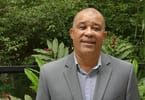MAPUTO, Mozambique — Mozambique’s Minister of Tourism, Carvalho Muaria, has urged Afonso Dhlakama, leader of the former rebel movement Renamo, to halt all armed attacks, because they are undermining the development of the country in general and of the tourism sector in particular.
Speaking on Saturday, at the closing session of a meeting of his Ministry’s Coordinating Council, held in the town of Mocuba, in the central province of Zambezia, Muaria stressed that tourism “is an industry of peace, social inclusion, national unity and development”.
“We want Mozambique, as a tourist destination, to continue being a reference point in the region, characterised by the practice of sustainable tourism, respect for the established laws, and free of corruption, racism and others forms of discrimination”, he added.
The latest Renamo attack coincided with the start of the Coordinating Council meeting, and took place in the village of Murotane, just 30 kilometres from Mocuba town. Renamo gunmen ambushed a group of Mozambican soldiers and policemen, killing two of them and injuring a further two.
Renamo armed attacks resumed about a year ago and are generally blamed for the 10 per cent drop in international tourists visiting Mozambique in 2013.
The Mozambican tourist trade hit a peak in 2012, when 2,205,853 international arrivals were recorded – 44.1 percent of these (971,868) were citizens of South Africa. But in 2013, the number fell to 1,969,716 international arrivals, including 872,017 South Africans.
But despite this fall, the number of foreign tourists visiting the country is greater than the Tourism Ministry’s projections. The Ministry had expected a slower rise in tourism, reaching over four million arrivals only in 2025.
Apart from the revenue it brings to the country, tourism also plays an important role in terms of employment. Throughout the country tourism establishments employ more than 45,000 workers, of whom 45 percent are women.
Muaria stressed that “because of its potential to create direct employment, tourism is a fundamental instrument for the eradication, of poverty, the promotion of social inclusion and the development of the country”.
WHAT TO TAKE AWAY FROM THIS ARTICLE:
- Speaking on Saturday, at the closing session of a meeting of his Ministry’s Coordinating Council, held in the town of Mocuba, in the central province of Zambezia, Muaria stressed that tourism “is an industry of peace, social inclusion, national unity and development”.
- “We want Mozambique, as a tourist destination, to continue being a reference point in the region, characterised by the practice of sustainable tourism, respect for the established laws, and free of corruption, racism and others forms of discrimination”, he added.
- Muaria stressed that “because of its potential to create direct employment, tourism is a fundamental instrument for the eradication, of poverty, the promotion of social inclusion and the development of the country”.






















